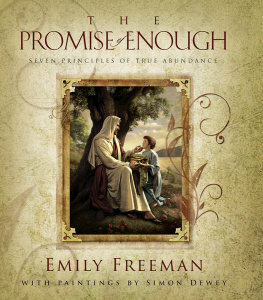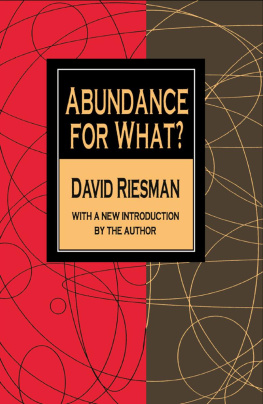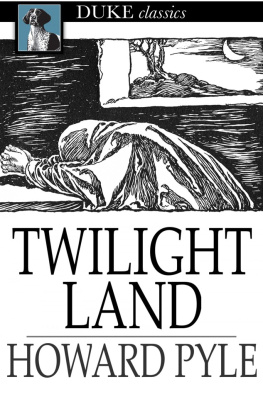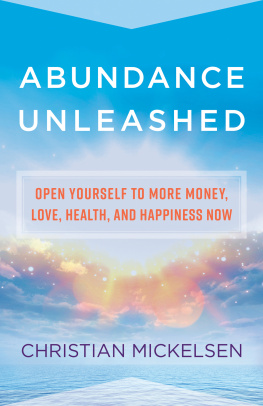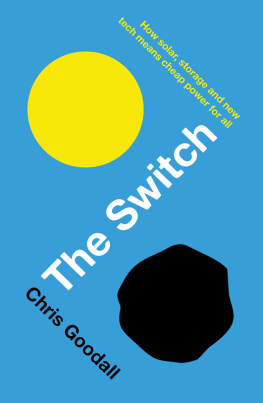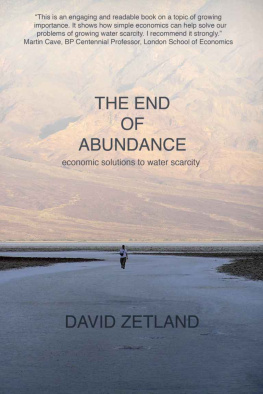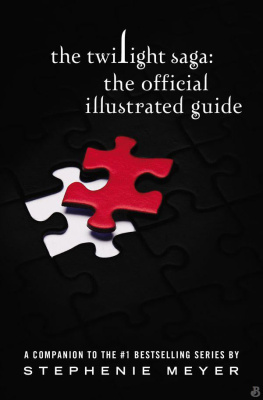


Copyright 2014 by David Archibald
All rights reserved. No part of this publication may be reproduced or transmitted in any form or by any means electronic or mechanical, including photocopy, recording, or any information storage and retrieval system now known or to be invented, without permission in writing from the publisher, except by a reviewer who wishes to quote brief passages in connection with a review written for inclusion in a magazine, newspaper, website, or broadcast.
First ebook edition 2014
eISBN 978-1-62157-229-9
The Library of Congress has cataloged the hardcover edition as follows:
Archibald, David, 1956- author.
Twilight of abundance : why life in the 21st century will be nasty, brutish, and short / David Archibald.
pages cm
1. Science and civilization. 2. Progress--Forecasting. 3. Twenty-first century--Forecasts. I. Title.
CB158.A735 2014
303.4909'05--dc23
2014001738
Published in the United States by
Regnery Publishing
One Massachusetts Avenue NW
Washington, DC 20001
www.Regnery.com
10 9 8 7 6 5 4 3 2 1
Books are available in quantity for promotional or premium use. Write to Director of Special Sales, Regnery Publishing, One Massachusetts Avenue NW, Washington, DC 20001, for information on discounts and terms, or call (202) 216-0600.
Distributed to the trade by
Perseus Distribution
250 West 57th Street
New York, NY 10107
CONTENTS
T he hardest thing to sell people on is the obvious. That is because the self-evident is so familiar that many instinctively have contempt for it. Like a prophet in his own country, the obvious is often too mundane to overawe.
David Archibalds book, Twilight of Abundance, is a collection of ideas that it seems we might have thought up ourselves. Archibald points out that we have been living in an unprecedented time of food and energy abundance in a period of peace unprecedented since the fall of the Roman Empire. And he supplies the evidence to back his point up. Then he argues that our civilization cant count on winning the lottery every week.
And yet that is what we have effectively done and intend to continue to do, in thrall to agendas that command our full attention, though we have forgotten what they are supposed to achieve. Issues such as global warming or gay marriagewhich may have some worth in themselvesare treated as existential problems, even as far more pressing issues are shunted to the side.
Archibalds major contribution is to put the obvious front and center again. Once having awakened our interest in the undeniably real existential threats, he argues that policymakers ought to take prudent steps to transition into new technologies and arrangements necessary to ensure global security and sufficient food and energy for the worlds populationinstead of living in the dream that these goods are givens, or falling into an ideological obsession with returning to some sylvan eco-paradise that never existed.
For his troubles David Archibald will probably be dismissed as an extremista climate change denier or some suchalthough it is hard to see what he is extreme about. Perhaps the strangeness is really just his departure from the talking points that are endlessly prescribed by the media, a kind of disorienting looping around to the place where we began.
That is precisely the value of his book. And while you may not subscribe to his arguments in their entirety, there is no doubt that David Archibald is asking the right questions. What will we use for energy in fifteen years time? What will the world eat, given its burgeoning population? Can we really count on the Pax Americana continuing indefinitely into the future? Important questions all.
And if the answer to any of these is I dont know or Nobody on TV is talking about this, then perhaps politicians should begin to focus on them. Better at least than continuing with their current obsession with trivial but politically correct pursuits.
The one obvious defect in Archibalds book is the title: Twilight of Abundance. This book is not about unavoidable impending tragedy. Archibald argues that we are not doomed to a new dark age. On the contrary, an even more prosperous and fulfilling future awaits us, but only if we keep our eyes open and use our common sense.
T his book had its origins back in 2005, when a fellow scientist requested that I attempt to replicate the work a German researcher had done on the Suns influence on climate. At the time, the solar physics community had a wide range of predictions of the level of future solar activity. But strangely, the climate science community was not interested in what the Sun might do. I pressed on and made a few original contributions to science. The Sun cooperated, and solar activity has played out much as I predicted. It has become establishedfor those who are willing to look at the evidencethat climate will very closely follow our colder Sun. Climate is no longer a mystery to us. We can predict forward up to two solar cyclesthat is, about twenty-five years into the future. When models of solar activity are further refined, we may be able to predict climate forward beyond a hundred years.
I was a foot soldier in the solar science trench of the global warming battle. But that battle is only a part of the much larger culture wars. The culture wars are about the division of the spoils of civilization, about what Abraham Lincoln termed that same old serpent that says you work and I eat, you toil and I will enjoy the fruits of it. This struggle has been going on for at least as long as human beings have been speaking to each other, possibly for more than 50,000 years. The forces of darkness have already lost the global warming battlethe actual science is settled in a way quite different from what they contend, and their pseudoscience and dissimulation have become impossible to hide from the public at largebut they are winning the culture wars, even to the extent of being able to steal from the future.
The scientific battle over global warming was won, and now the only thing that remained to be done was to shoot the wounded. That could give only so much pleasure, and the larger struggle called. So I turned my attention from climate to energyalways an interest of mine, as an Exxon-trained geologist. The Arab Spring brought attention to the fact that Egypt imports half its food, and that fact set me off down another line of inquiry, which in turn became a lecture entitled The Four Horsemen of the Apocalypse. Those apocalyptic visions demanded a more lasting formand thus this book.
While it has been an honor to serve on the side of the angels, that service has been tinged with a certain sadnesssadness that so many in the scientific community have been corrupted by a self-loathing for Western civilization, what the French philosopher Julien Benda in 1927 termed the treason of the intellectuals.last season, the winter. Spenglers contention is that this fate cannot be avoided, that we are facing complete civilizational exhaustion.
In this book, I contend that the path to the broad sunlit uplands of permanent prosperity still lies before usbut to get there we have to choose that path. Nature is kind, and we could seamlessly switch from rocks that burn in chemical furnaces to a metal that burns in nuclear furnaces and maintain civilization at a level much like the one we experience now. But for that to happen, civilization has to slough off the treasonous elites, the corrupted and corrupting scribblers. Our civilization is not suffering from exhaustion so much as a sugar high. This book describes the twilight of abundance, the end of our self-indulgence as a civilization. What lies beyond that is of our own choosing.
Next page


